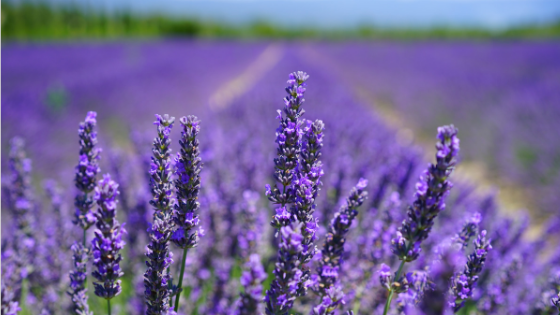Flower power or purple placebo?
As seen in Psychology Today
Herbs, flowers, and other plants have been used for medicinal purposes for millennia. There is evidence suggesting that the herb yarrow was used as long as 60,000 years ago in what is modern day Iraq to treat wounds. Evidence also suggests that ancient Europeans used the fruit found in birch trees as a laxative. Although it is difficult to discern exactly how well our ancestors understood the relationship between natural remedies and their bodies, it is clear that they have been part of humanity’s medicinal toolkit for ages.
In many parts of the world, plant-based medicines continue to be used to treat a wide variety of diseases. With the dawn of the twentieth century, however, Western medicine began to distance itself from these traditional remedies. It was commonly beheld that modern pharmaceuticals made their more natural counterparts obsolete.
In response to the surge in sales of plant-based medicines and supplements, a growing number of Western researchers are now taking a second look at natural treatments. They are applying the same level of empirical scrutiny that synthetic pharmaceuticals receive and finding that there are numerous plants that do possess medicinal qualities. They are also finding that these traditional medicines oftentimes spare patients the numerous side effects that a regimen of pharmaceuticals created within a lab are known to cause.
For example, a recent meta-analysis published in the European Archives of Psychiatry and Clinical Neuroscience suggests that lavender oil, when taken orally, can help individuals suffering from certain types of anxiety. The analysis examined the effects of the oil (specifically Silexan, which is the active substance in the product Lasea) on subthreshold anxiety disorder
According to the authors of the paper, patients with subthreshold anxiety disorder have “clinically relevant symptoms of anxiety…but not all diagnostic criteria of ‘syndromal’ generalised anxiety disorder (GAD) according to the standards of the Diagnostic and Statistical Manual of Mental Disorders.” The analysis found that the mean anxiety level for patients in multiple randomized, double-blind, placebo-controlled clinical trials saw a significant decline after the oral administration of Silexan when compared with those who received a placebo.
The subjects in each of the trials scored an 18 or above on the Hamilton Anxiety Rating Scale (HAMA), which is a system used to quantify anxiety. A subject’s HAMA score is based on 14 items and can range from 0 to 56. Scores below 17 indicate mild or innocuous levels of anxiety, while scores between 18 and 24 indicate mild to moderately severe levels of anxiety, and scores of 25 and above indicate severe anxiety. Additionally, the paper’s authors assumed it reasonable to assert that, “A treatment group mean value difference in HAMA total score reduction of 2.5 or three points to be clinically important.”
Because those who were administered Silexan experienced, on average, a decline of 3.83 points. The analysis’ authors concluded, “Silexan has a significant and clinically meaningful anxiolytic effect in subthreshold anxiety.” The researchers also found that Silexan was effective at reducing sleep disturbances caused by anxiety symptoms, and noted that, “10 weeks’ administration of Silexan led to a significantly more pronounced symptom reduction than placebo treatment.”
While the research team’s findings are promising and show that natural remedies can provide real benefits to patients, one should not think that all plant-based medicines are entirely beneficial or that they pose no dangers. Many natural extracts contain hundreds of compounds (lavender, for example, contains at least 160 individual substances), and these substances are not necessarily benign just because they are naturally occurring. Silexan, for example, did produce mild side effects in some subjects involved in the tests—namely, allergic skin reactions and indigestion.
It is important to note that Western medicine and natural remedies are not opposite ends of the treatment spectrum. There can be a healthy intersection of the two.
Disclosure: I do not have either a primary or a secondary interest in Lasea or the corporation that sells the product. This information is for educational purposes only and does not constitute an endorsement of their product.


0 Comments on "Lavender Oil’s Effects on Anxiety"